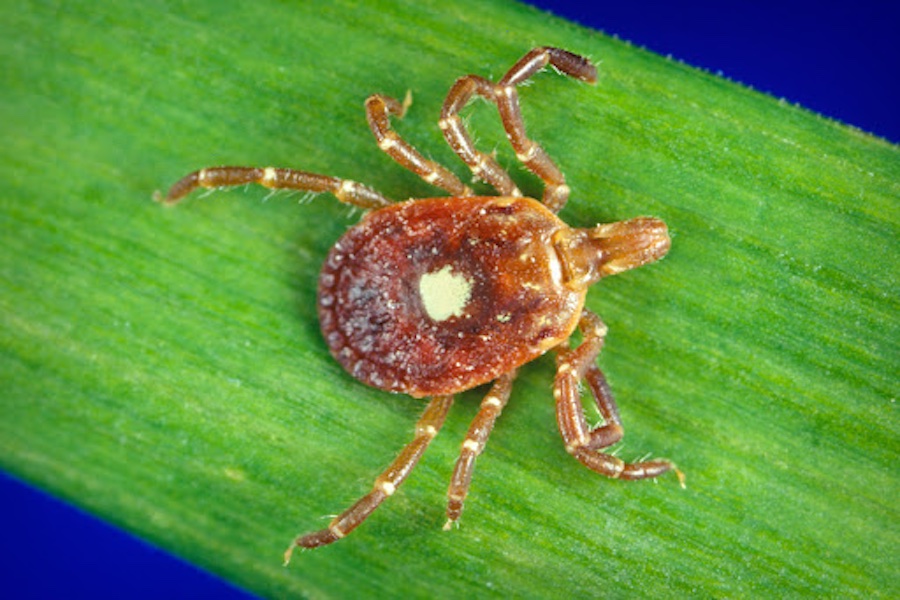
A New Jersey man is believed to be the first documented fatality from Alpha-Gal Syndrome, a mysterious and emerging meat allergy triggered by tick bites.
The man, a 47-year-old airline pilot, was described as being in otherwise good health at the time of his death, according to a case study from researchers at the University of Virginia School of Medicine and Hackensack Meridian Health in New Jersey.
In the summer of 2024, he went camping with his wife and children. A few hours after eating beef steak for dinner, he awoke in the middle of the night with abdominal discomfort, which later led to vomiting and other symptoms.
He and his wife considered contacting a doctor, but ultimately decided against it after his condition improved. Two weeks later, in September, the man and his wife attended a barbecue in New Jersey during which he ate a hamburger, ABC News reported.
Two weeks later, in September, the man attended a barbecue at which he ate a hamburger. Four hours later, he was found unconscious on the floor of his bathroom. Paramedics attempted to resuscitate him and transported him to a local hospital, though he was ultimately pronounced dead upon arrival.
The cause of death was initially ruled as “sudden unexplained death” after inconclusive results. The man’s wife provided the autopsy report to a doctor, who forwarded it to an allergy specialist for further investigation.
Using blood samples, the specialist determined that the man suffered an extreme reaction to Alpha-Gal Syndrome, an alarming tick-borne illness that is expanding across the continental United States.
When asked if he had been bitten by ticks, his wife said he had in the past and that, earlier in the summer, he had at least 12 or 13 “chigger” bites around his ankles. Researchers have stated that bites commonly attributed to “chiggers” in the Eastern United States are often larvae of lone star ticks.

Alpha-Gal Syndrome has been attributed to Lone Star tick bites, largely in the southeastern United States
Alpha-gal syndrome (AGS) is an emerging allergic condition in which the immune system develops IgE antibodies to galactose-alpha-1,3-galactose (alpha-gal), a sugar molecule found in most mammalian meat, including pork, beef, venison and more, according to the Mayo Clinic. Once the illness takes hold, consumption of such products triggers reactions ranging from hives, itching, and gastrointestinal distress to life-threatening anaphylaxis.
Unlike other common food allergies, reactions typically do not occur from anywhere between two and six hours after exposure.
AGS is not contagious from person-to-person, and is instead spread exclusively through Lone Star tick bites. The tick specie’s range has rapidly expanded in recent years, now spanning from the entire Eastern U.S. from Florida to Maine and westward to central Texas and the Dakotas, with established populations in at least 33 states plus northern Mexico. The range is expected to continuously stand in multiple directions, researchers have warned.
CDC’s November 2025 tick surveillance update reports lone star tick detections in 9 new northern counties since 2023, including first established populations in southern Michigan, eastern Wisconsin, and southeastern Minnesota. According to the agency, AGS cases have surged by 300 percent since 2017, with about 110,000 suspected cases in the United States.
RELATED: RFK Announces COVID Jab’s Removal From CDC Immunization Schedule
, 2025-11-15 22:02:00,  , Trending Politics Conservative Breaking News and Commentary, %%https://trendingpoliticsnews.com/wp-content/uploads/2024/10/cropped-tp-fav-2-32×32.png, https://trendingpoliticsnews.com/feed/, Cullen McCue
, Trending Politics Conservative Breaking News and Commentary, %%https://trendingpoliticsnews.com/wp-content/uploads/2024/10/cropped-tp-fav-2-32×32.png, https://trendingpoliticsnews.com/feed/, Cullen McCue
